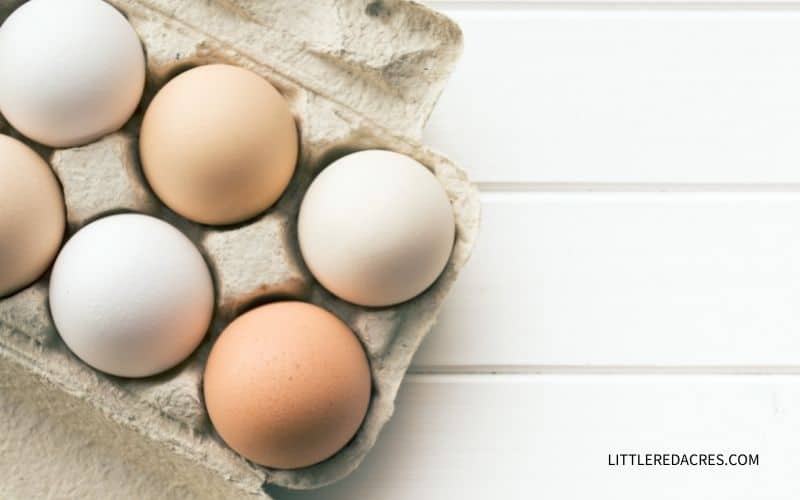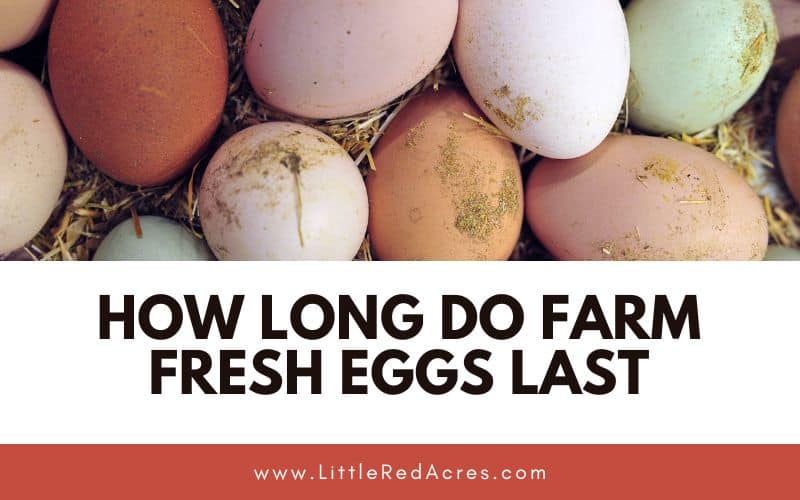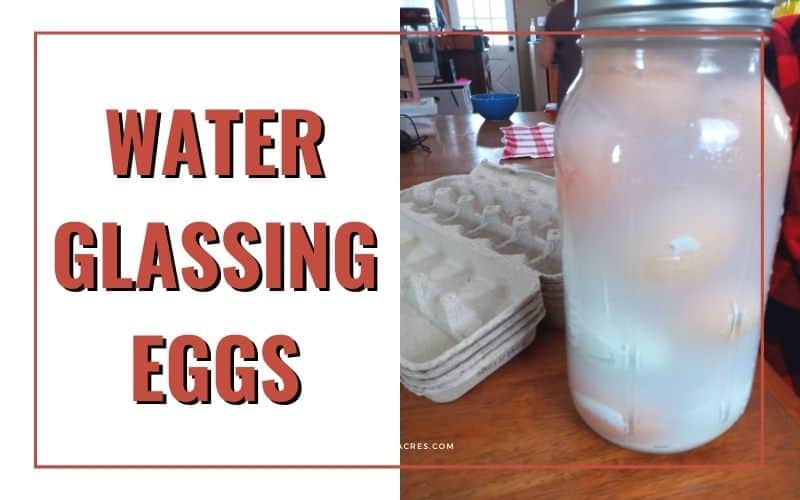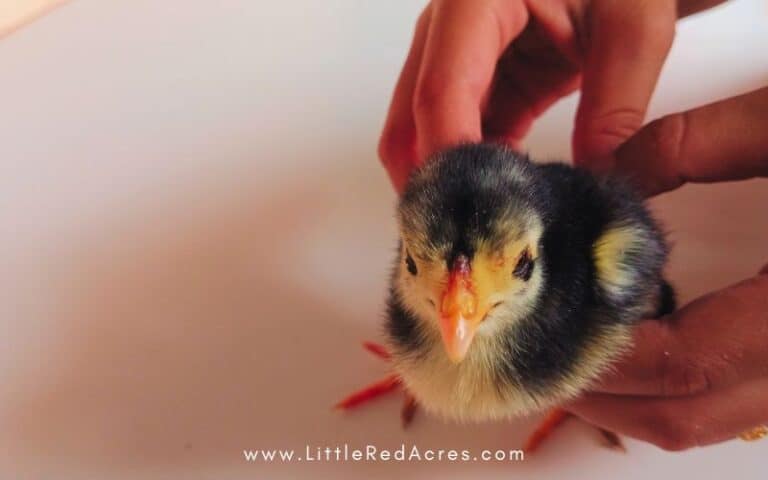How Long Do Farm Fresh Eggs Last
There's something special about farm fresh eggs—their vibrant yolks, rich flavor, and the satisfaction of knowing they come from well-cared-for hens. But if you're lucky enough to have a source of farm-fresh eggs, you might find yourself wondering: How long do these eggs last?

This post may contain affiliate links, see my disclosure policy for more information.
How Long Do Farm Fresh Eggs Last
Let's delve into the shelf life of farm fresh eggs and provide you with some helpful tips to ensure their freshness and safety.
Get updates & freebies delivered to your inbox!
Farm fresh eggs typically have a longer shelf life compared to store-bought eggs due to a few factors.
The eggs you get straight from the farm are usually laid very recently.
Farm fresh eggs often have their natural protective coating, known as the “bloom” intact. This coating helps seal the eggshell pores and reduces moisture loss, which contributes to the eggs' longevity.
Unwashed farm fresh eggs last for two weeks to a month at room temperature. After that, you must store them in the fridge. If you refrigerate freshly laid eggs, they should last for three to six months in an airtight container.

Proper Storage Tips
To maximize the shelf life and maintain the freshness of your farm fresh eggs, follow these essential storage tips:
Refrigeration
Store farm fresh eggs in the refrigerator as soon as possible.
Place the eggs in the main body of the refrigerator, not in the door. The temperature fluctuations in the door can accelerate spoilage.
Keep the eggs in a carton to protect them from moisture and odors in the fridge. The carton also helps to prevent potential breakages.
Do Not Wash
Do not wash the eggs until you're ready to use them. Washing removes the protective bloom and exposes the eggshell to potential contaminants and moisture.

Freezing
If you have an abundance of farm fresh eggs, you can freeze them for later use. Crack the eggs into a freezer-safe container, gently whisk them, and label the container with the date. Use them within one year for the best quality. Learn more ways to preserve eggs long-term.
Water Glassing
You cannot water glass store-bought eggs. These eggs have been scrubbed clean and often bleached. Washing your eggs will destroy the bloom coating, which will allow the lime to enter the egg during the water glassing process.
Any type of fresh, unwashed, clean eggs will work for water glassing. Chicken, quail, duck. Unwashed with the bloom still in place. The bloom coating is then sealed in place by the water and lime mixture during water glassing, leaving you with eggs ready for storage in your pantry.

Are Your Eggs Still Good?
To assess the freshness of farm fresh eggs, you can try the water test.
Fill a bowl with cold water and gently place an egg in it. Fresh eggs will sink to the bottom and lie flat on their sides. Slightly older eggs may stand upright on the bottom, while less fresh eggs will float due to the larger air cell that forms as the egg ages. Floating eggs are not necessarily bad, but they should be used promptly.
Farm fresh eggs offer a delightful culinary experience, and when handled and stored properly, they can retain their freshness for weeks. Remember to refrigerate them promptly, keep them in their original carton, and avoid washing them until needed. By following these guidelines, you can savor the farm-to-table freshness of eggs.







